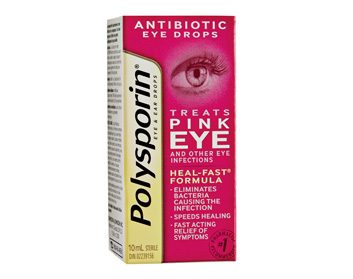
Mosquitoes
Female mosquitoes bite to feed off the proteins in our blood (the males, since they don’t produce eggs, don’t need the proteins and won’t bite us). The bite injects their saliva into our skin, which triggers inflammation and itchiness. Mosquito bites usually cause only minor reactions that last a day or two, but itchy bumps can sometimes last a week, says Dr. Sunil Kalia, a dermatologist at the Vancouver General Hospital Skin Care Centre.

Bees and wasps
Female bees and wasps (including hornets and yellow jackets) will sting in defence if provoked-by, say, a human swatting at them. Their stingers deliver venom that causes pain, swelling or, if an allergy exists, a potentially serious immune system reaction. While bees leave their stingers behind and die after stinging, wasps can sting over and over again. The symptoms of a bee or wasp sting typically go away within a few hours-however, about 10 percent of people experience more pronounced redness and swelling that can last up to 10 days, and three percent develop a severe allergic reaction that requires emergency treatment. Called anaphylaxis, the condition can develop within minutes to hours of a sting, and is characterized by difficulty breathing, swelling of the throat or tongue, hives, itching, flushed or pale skin, dizziness, fainting, nausea, vomiting, diarrhea, or even loss of consciousness or death.

Ants
Fire ants (which are found in British Columbia, Ontario, Quebec, Nova Scotia and New Brunswick) and harvester ants (found in western Canada) are capable of biting, and will also aggressively use their stingers to defend themselves. Their venom may cause red, pus-filled blisters. An anaphylactic response can occur after an ant sting, although most people experience only a mild reaction that resolves within one week.

Preventing bites and stings
“To minimize your chances of being stung or bitten, cover any exposed skin and avoid wearing fragrances or using fragranced soaps, shampoos and deodorants, which can attract insects,” says Kalia. Light-coloured clothing attracts fewer bees and wasps than dark or bright shades. You should steer clear of flowering plants, still water (a breeding site for mosquitoes), beehives and wasp nests. Promptly clear away any sweet foods, beverages, garbage and animal feces, which all appeal to bugs. Always wear shoes outdoors, especially on grass, where stinging ants can live in mounds. If a single bee or wasp is flying around, stay still or go indoors. Once one stings, it releases a chemical that alerts more of them to attack.
“Using an insect repellent with DEET can also be helpful, although clothes are still more protective,” says Kalia. Unless you’re in an area with a large concentration of mosquitoes, a DEET concentration of 10 to 24 percent is sufficient (it’s available in Canada at up to 30 percent); children under 12 should use a product with less than 10 percent.
See a doctor if a bite or sting does not improve after a few days or if the area shows signs of infection (usually caused by scratching with dirty fingernails), including a pus discharge; increased redness, swelling and pain around the site; and swollen glands. If you are not experiencing these symptoms, it’s safe to treat a bite or sting with these over-the-counter remedies.

Drugstore remedies
Examples: Benadryl Allergy Caplets; Advil Tablets; Aerius; AfterBite Gel; Benadryl Itch Cream; Claritin Allergy; Claritin Skin; Lanacane Maximum Strength Anti-Itch Cream; Polysporin Itch Relief Lotion; Reactine Regular Strength
How they work: “Benadryl [Allergy], an oral antihistamine containing diphenhydramine, is the best treatment for reducing swelling of the skin from any insect bites or stings, and itching from mosquito bites and ant stings,” says Lori Bonertz, staff pharmacist at the Fort St. John Pharmacy and Wellness Centre in Fort St. John, B.C. “But it can be sedating, so loratadine [in Claritin Allergy], cetirizine [in Reactine] and desloratadine [in Aerius] are other good options.” Topical antihistamines such as Benadryl Itch Cream (which contains diphenhydramine) are less potent but can temporarily soothe itchiness. Other topical itch relievers include hydrocortisone (in Claritin Skin), pramoxine (a numbing agent in Polysporin Itch Relief), benzocaine (an anesthetic in Lanacane) and ammonia (in AfterBite). Advil won’t reduce itching, but its ibuprofen can help with the inflammation of bites or stings, and pain.

Natural remedies
Examples: Aveeno Daily Moisturizing Bath; Arm & Hammer Baking Soda; Nature’s Harmony Quercetin
How they work: Another oral anti-itch option is quercetin, a natural antihistamine, says Amy Gilchrist, a naturopath at Acacia Integrative Health Clinic in Victoria. Applying cold compresses or bathing in an oatmeal or baking soda bath can also soothe pain and itching, and you could try applying a paste of baking soda and water to bites or stings. The oatmeal in Aveeno Bath is anti-inflammatory and helps the skin retain moisture, while the sodium bicarbonate in baking soda can reduce itch.

Need to know
If you are stung by a bee, remove the stinger right away by wiping a piece of gauze or a clean fingernail over the area, and then wash the area with soap and water. When taking oral antihistamines, follow package directions; one or two Benadryl caplets can be taken every four to six hours, while Claritin, Reactine and Aerius should be taken once every 24 hours. Check with your doctor before taking oral antihistamines if you are pregnant or breastfeeding; are taking another medication; have glaucoma or an enlarged prostate; or have lung, liver or kidney disease. Topical treatments may be used three or four times daily, but baths and compresses as often as needed. Gilchrist recommends taking 400 to 500 mg of quercetin, twice daily.
Related:
• 4 natural bug repellents
• Natural remedies for bug bites, hives and itching
• Natural remedies for insect and spider bites
